Do you know…
There are so many different types of statistics flying around these days, and not just for business. From the average hours worked by someone working from home to staff turnover since the pandemic started and even how many offices have an office dog!
Seriously though, statistics have their place and can make a business really sit up and think about if a certain statistic is relevant to them and their business.
The below statistics are ones which I think are relevant to the industries Wingman work in and will hopefully make you think, bring to light matters that you have maybe been pondering for some time and hopefully give you that nudge to do something about it.
I’ll be sharing my thought’s and experiences related to each statistic, asking for your thoughts and comments to help others and shed light on possible solutions.
Rory
Do you agree with this number? Do you think if you surveyed your teams the number would be lower?
Those who have heard me speak will know I have asked the following question for many years… ‘How many of you here believe that the teams in your business are performing to the best of their ability?’ Some businesses think you can throw a bunch of people together and they automatically become a team. A team needs time to get to know each other, time to understand others strengths and weaknesses, time to become a team.
If the teams within your business work together because they want to rather than being pushed together how much higher would productivity be?
Source: visix.com
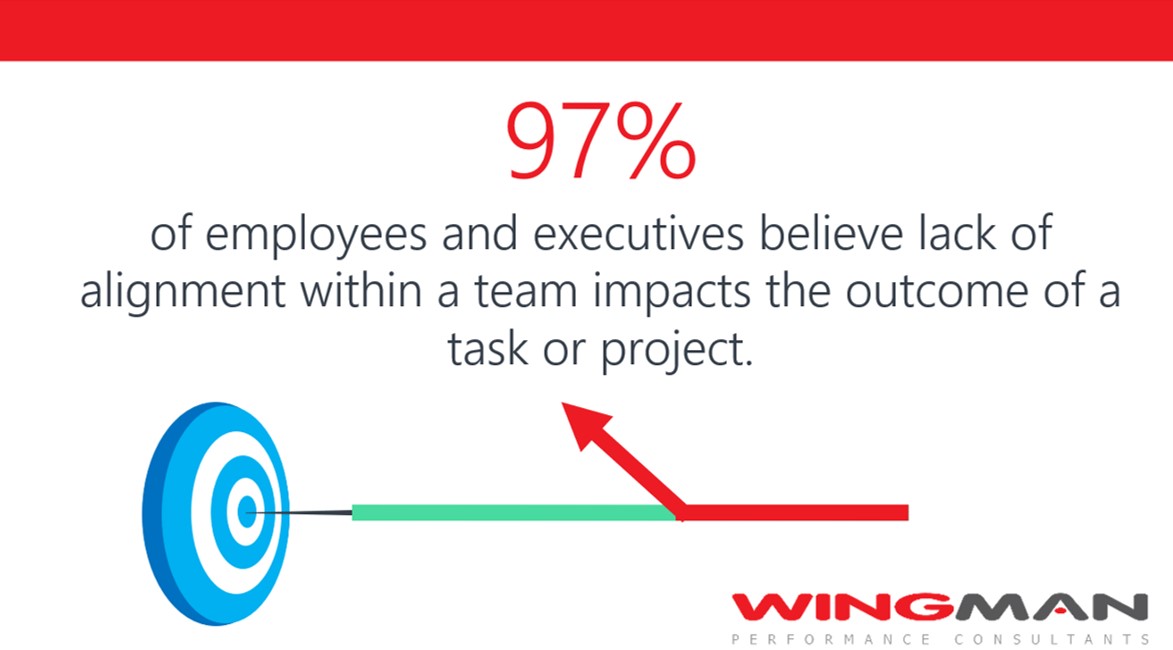
There’s communication, then there’s effective communication.
Sending an email may be the easy option, but in today’s businesses effective communication takes a little more effort.
I went into a business, several years ago, where there were two teams, who if they had been communicating effectively would have saved themselves, and the business, time and money:
- Team One was tasked with creating a monthly report for Team Two. They downloaded the report and then spent time converting it to a different format to send across to Team Two.
- Team two received the report and then spent time converting it to the format that they actually needed.
- This had been going on for years.
- In a Wingman workshop, we got the two teams together to discuss how they could help each other be more efficient and effective. Team Two asked Team One if they could produce the report in the format they actually needed.
- As it turns out, that format was the same as the originally downloaded format all along but neither side knew.
If the two teams had been communicating effectively from the beginning, they would have realised sooner and all that time, effort and cost could have been saved for the team and the business overall.
Just because something has been done a certain way in the past, doesn’t mean it is the most effective way now.
How often to your teams get together to discuss HOW they work together and what they need from each other, not just what they are working on?
Source: pumble.com
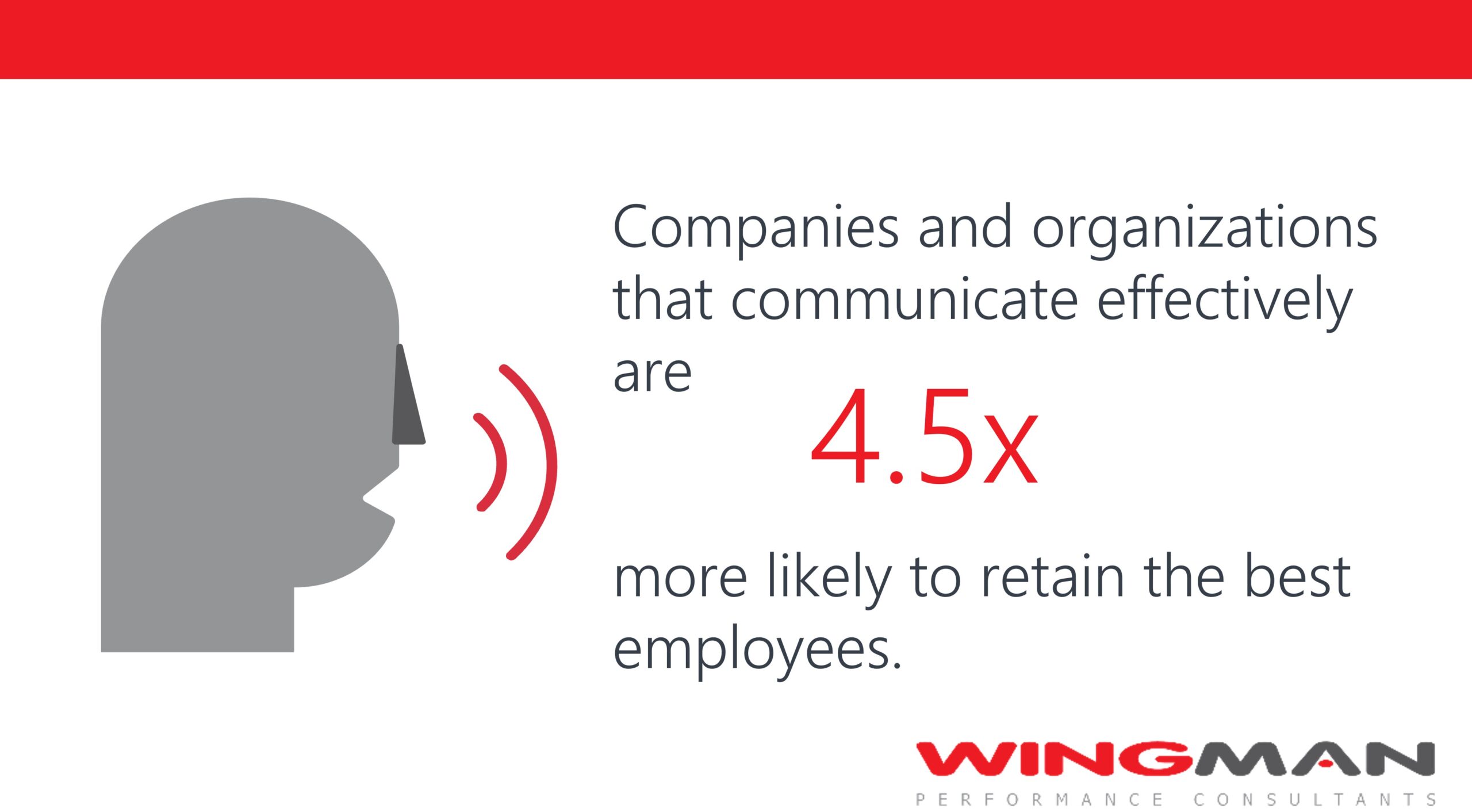
Technology…
Technology is ever evolving and when we think back just 15-20 years and how much has changed in the technology world, we realise how heavily we rely on it.
For me, as I’m sure the case is for many of you, my phone holds everything I could possibly need to contact someone (email, phone, text, video), to remember where I am supposed to be and when (calendar, reminders, maps), connect with people on social media (LinkedIn, Twitter, Instagram), record memories (camera, video, calendar and notes) as well as much more like shopping, catching up on the news and monitoring my fitness.
If my phone were to vanish, I’m not sure how I’d feel, maybe relief for a day or two, but then not being able to instantly look something up, call a colleague to run through an idea I’ve just had or check where my next meeting was would become increasingly frustrating and impact on my business and those within it.
Are you one of the 83% who rely on technology to collaborate? What ways do you/your team use to collaborate?
Source: Alfresco.com
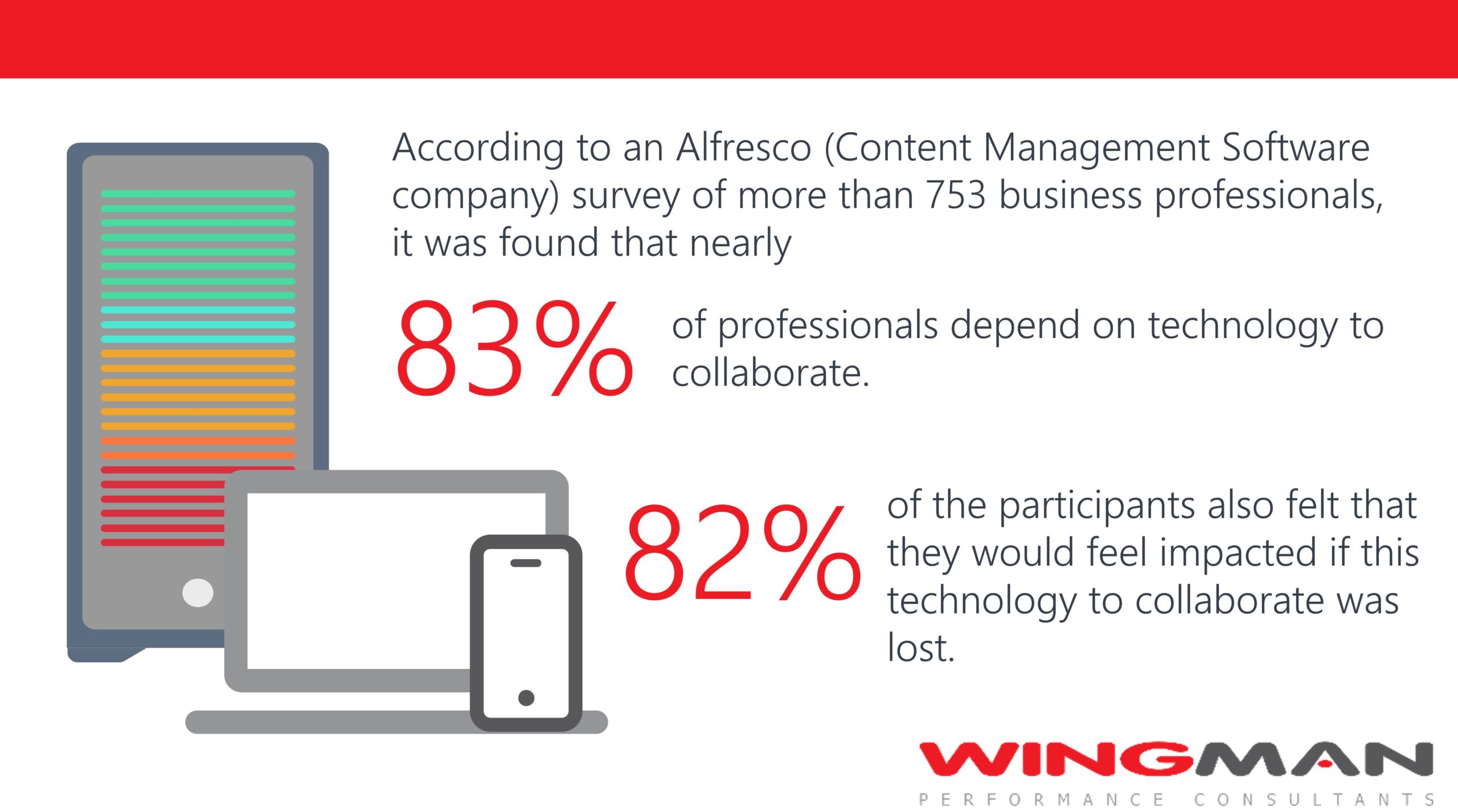
Teamwork …
On nearly every job advert you see these days an employer will state that teamwork is a high priority but when in role, employees are rarely asked about how they are communicated to, if it is effective for them or if the way they communicate to others is received positively.
We like to think we lead by example at Wingman, but we are lucky in that we all work in one office so can easily ask a quick question, make a suggestion or offer help. When it comes to helping one another or a different department, the team brings different ideas and solutions which helps to strengthen skills, build stronger relationships and drive the business forward.
How do your teams communicate? Are there different ways for different departments? Do employees have regular opportunities to feedback?
Source: Visix.com
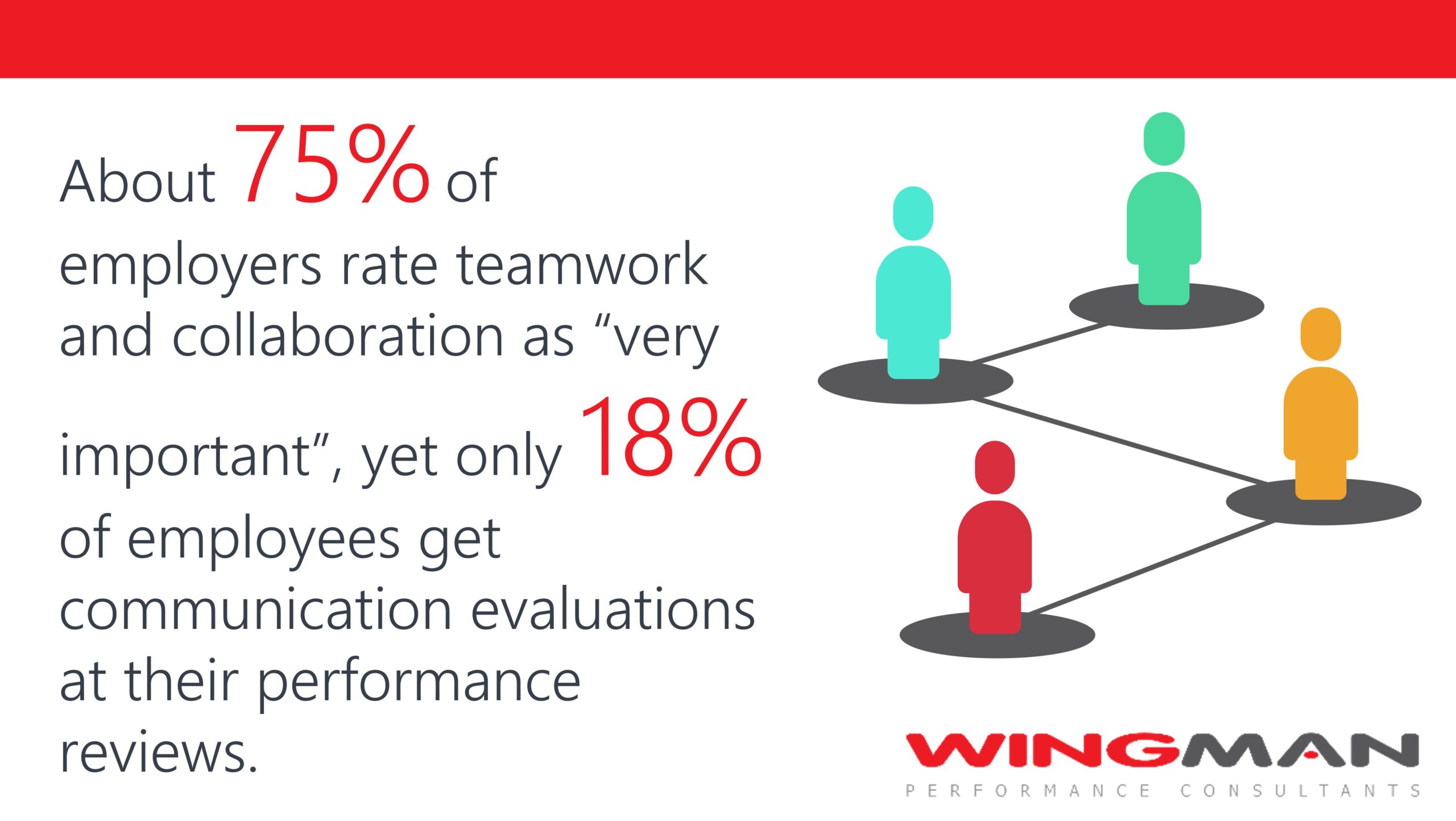
Communication …
Being open and honest with your employees is one of the most powerful things you can do as an employer. Having regular one-on-one meetings, team meetings, department meetings and company meetings makes employees feel as though they are part of the bigger picture. If everyone within your business knows the same as each other, feels empowered to take their team forward and brings out the best of that team then surely morale will be high.
High morale = a happy workforce = increased productivity – do you agree?
Source: Visix.com
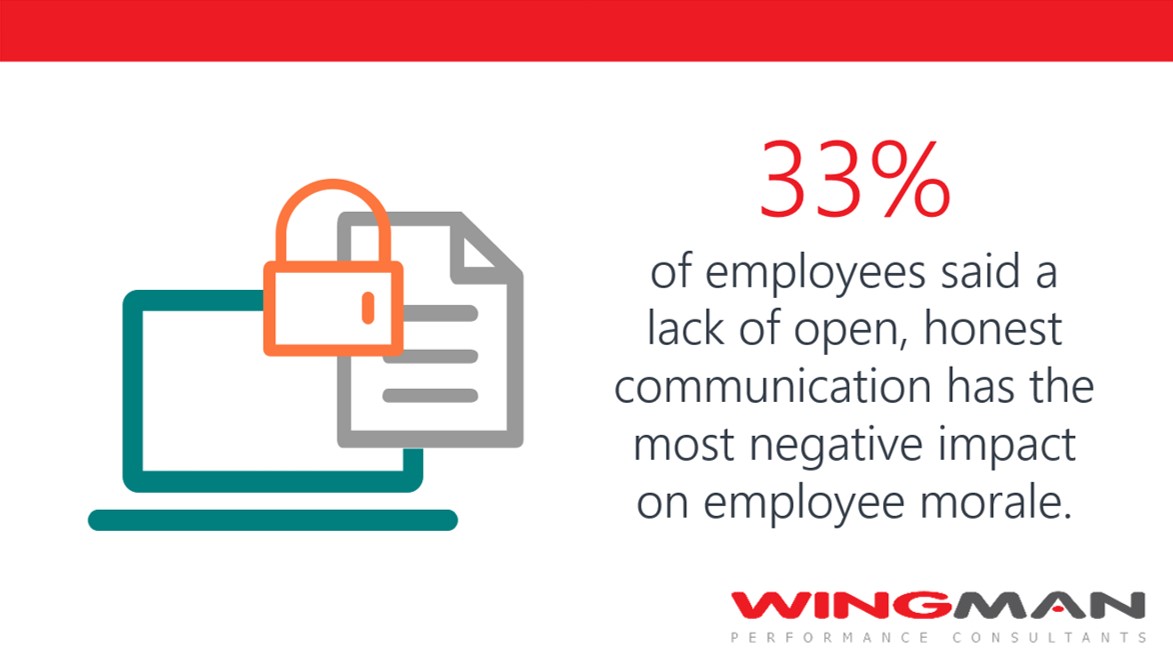
You don’t know what you don’t know, right?
How many times have you said, ‘I wasn’t aware of that’, ‘I wasn’t told that’, ‘That’s not how I understood the conversation’?
Effective communication is key in any organisation but certainly in businesses where there are several teams, in several different offices, over different floors and in a variety of locations.
Having a consistent message is also key. There can be a long and detailed version that explains the ins and outs for those who like detail, your standard version that gives the message but in a simple way and even a ‘short, sharp, sweet’ version. As long as their message is the same, the details are consistent and it I communication using the right medium.
Source: Visix.com
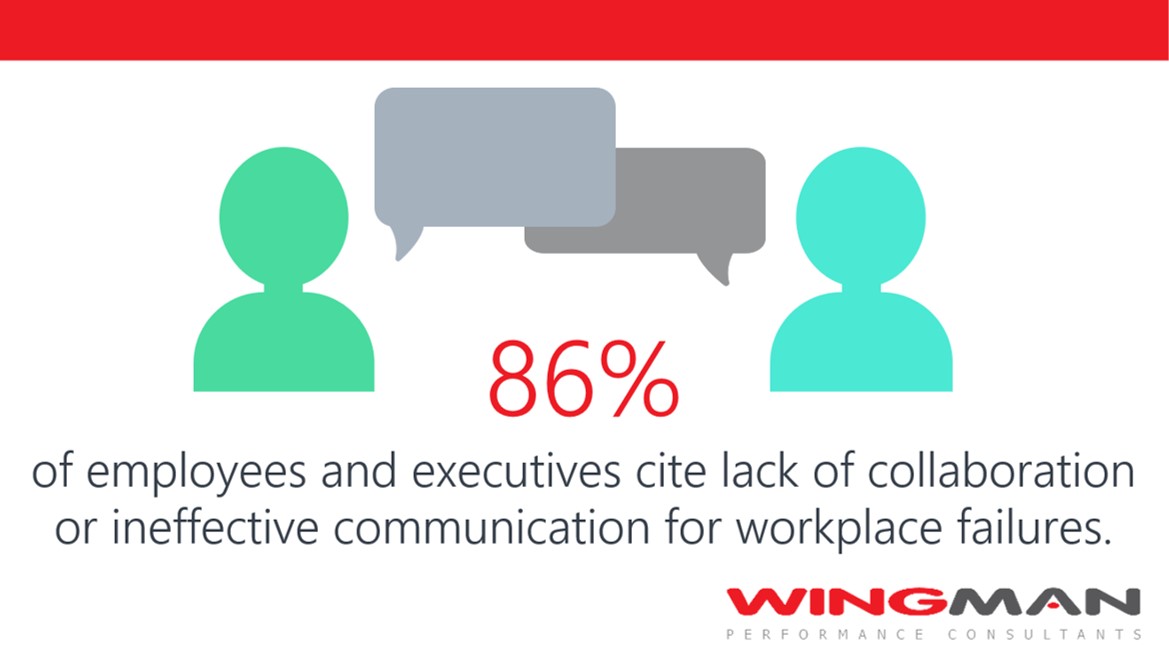
Collaboration …
Now this surprises me as I posted further above that according to Alfresco 83% of professionals depend on technology to collaborate (out of 753 business professionals).
From these participants 49% use their mobile device for collaboration with the majority of those thinking it is important.
I know in the Wingman team we have apps on our phones for our CRM, Teams, Zoom, mailshots and finance as well as the usual mobile apps so surely our phones are the ideal technology for both work and personal?
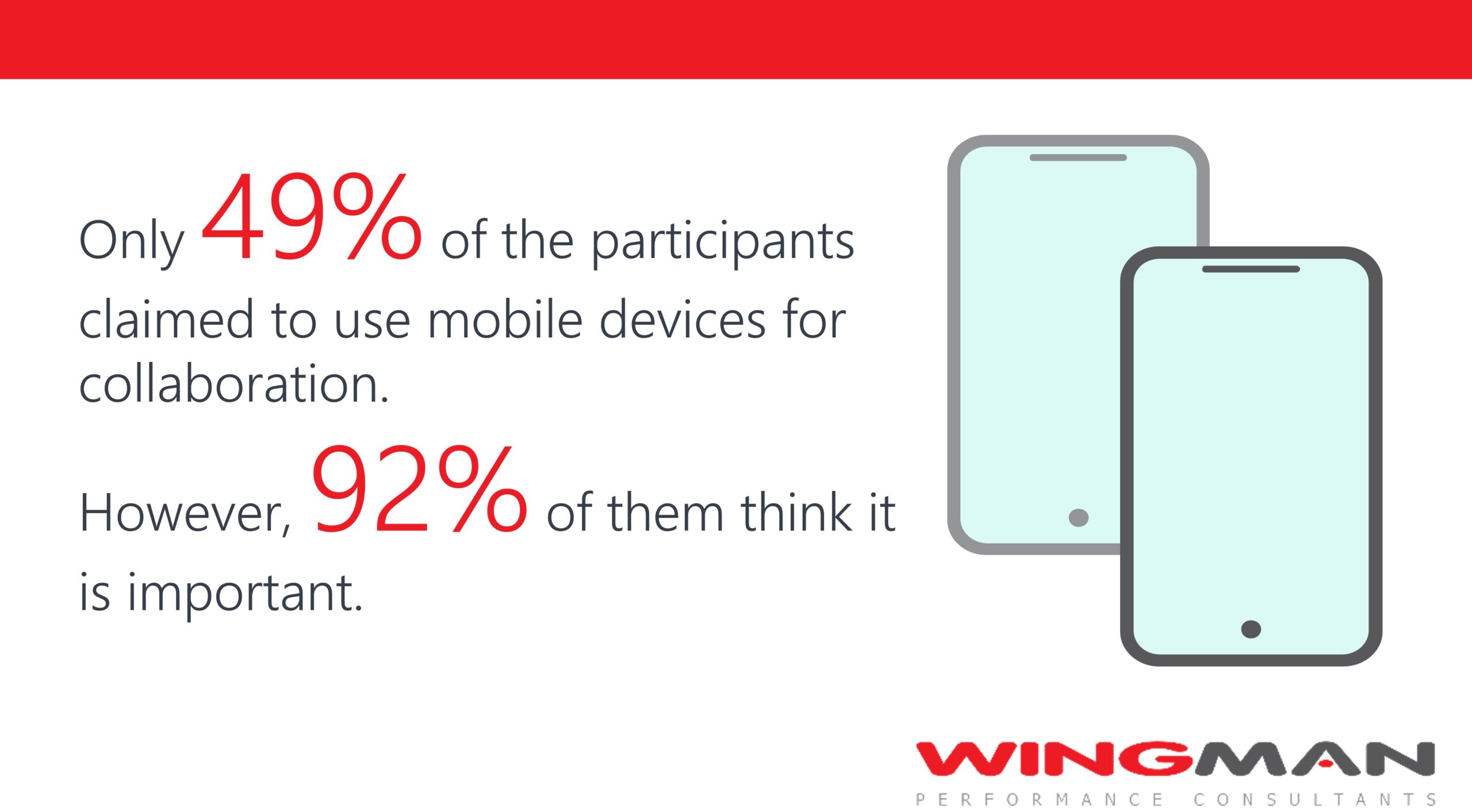
Employee turnover …
I think we all know that if we communicate effectively with our teams and they feel involved and respected they are less likely to leave.
Having robust procedures, annual reviews and regular meetings with the individuals within your team/s and team/s as a whole is surely less time consuming, and costly than having to find someone new?
What good and bad experiences have you had with communication over your career? Has a way in which a company’s communications with you impacted on your loyalty to the company?
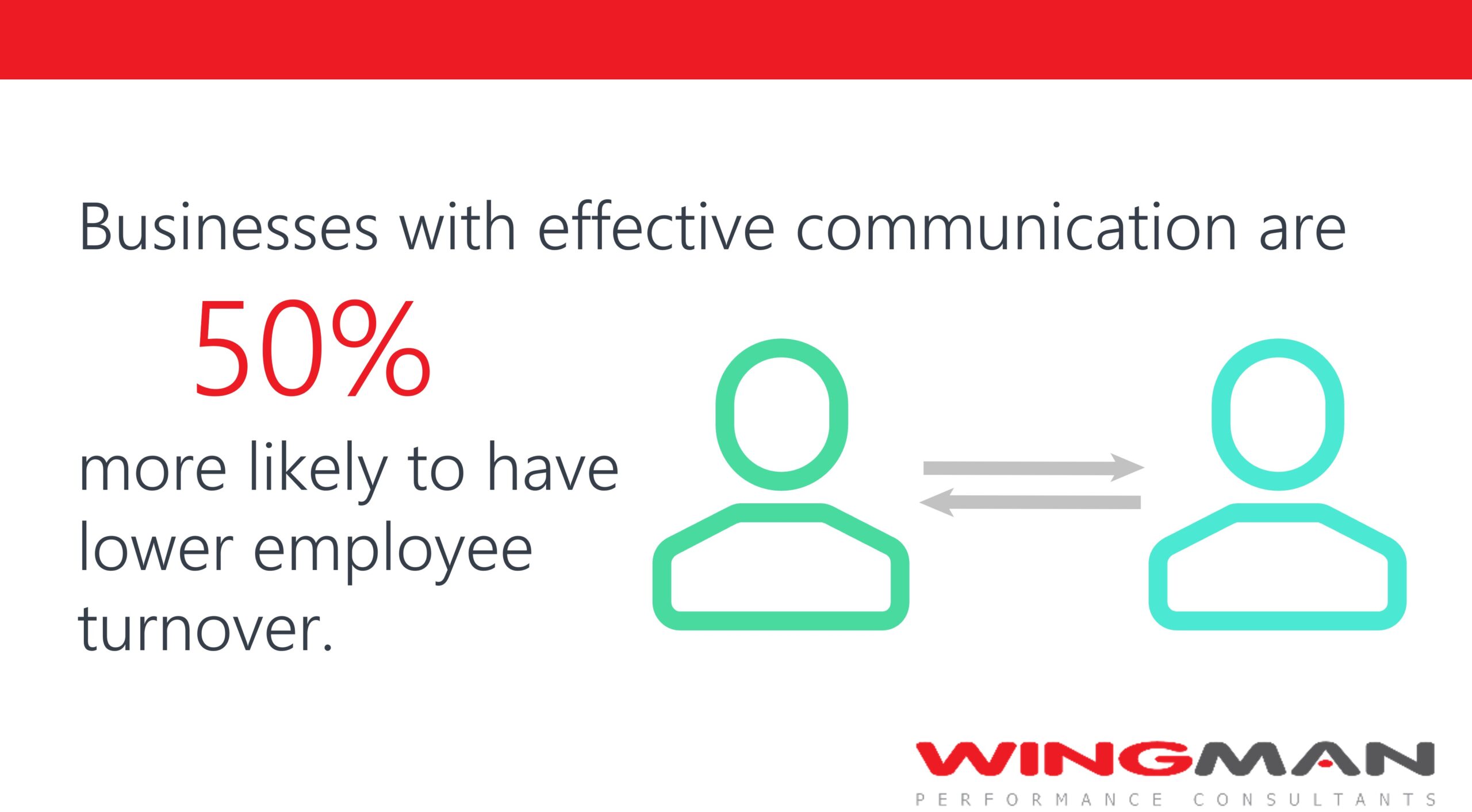
Community …
Being in the Royal Air Force and playing Rugby meant my first 20+ years of my career meant I had a strong sense of community, it’s something that came with the jobs, I loved it.
With the RAF, as I’m sure you can imagine, we’re and are very strong. We all go through the same training, have the same pass rates, are expected to conduct ourselves in a particular manner and follow the same policies and procedures. It was a similar scenario when playing Rugby for county and country. We all had the same goal (to win), we trained as a team, celebrated, and commiserated together and were proud to represent our county and country.
The same goes for Wingman, I have a great team around me, we celebrate the milestones of individuals and the company, we communicate the vision and mission of the company and listen everyone’s input no matter, department, level etc.
Source: Visix.com
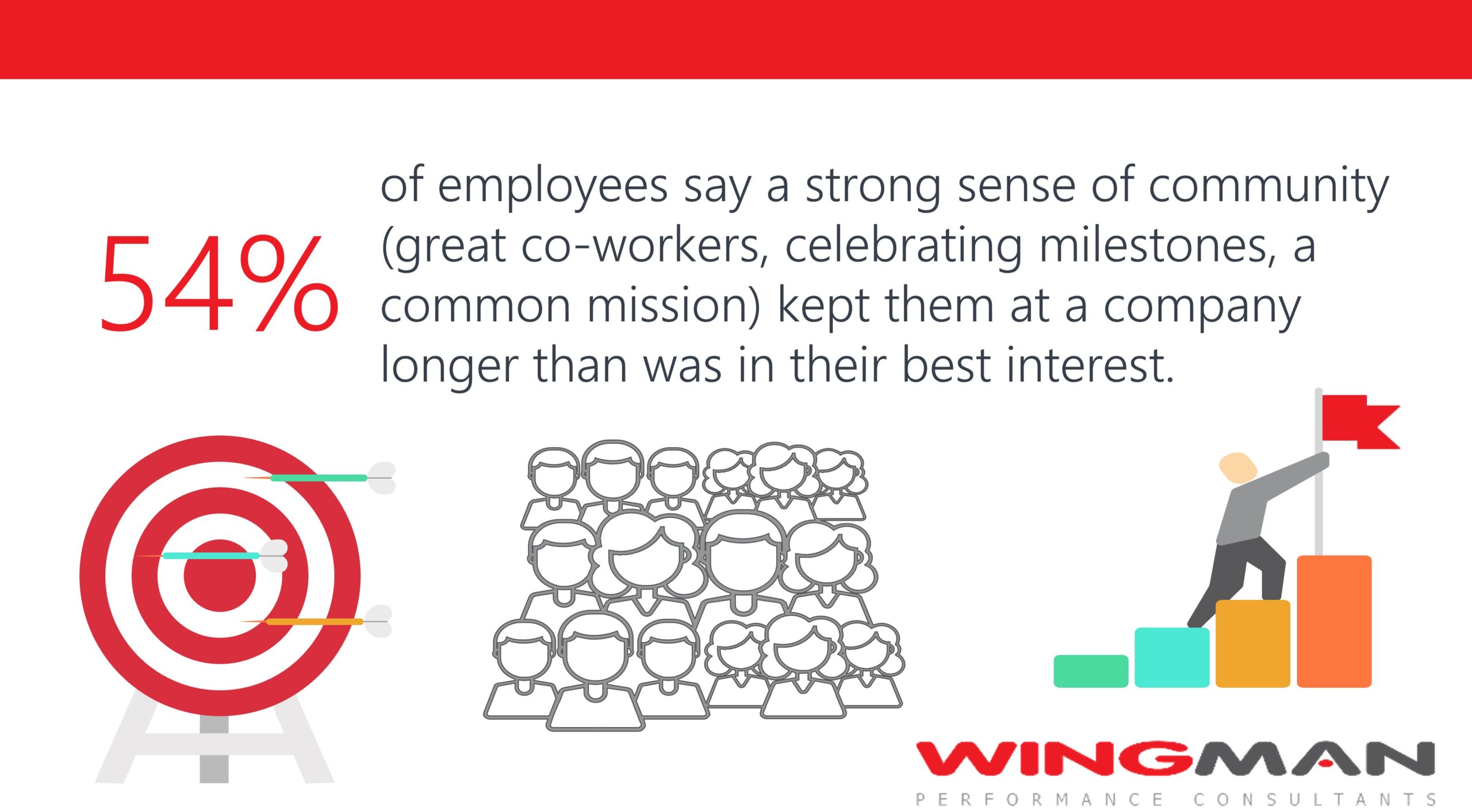
How do you collaborate in your business?
Do you feel it works effectively or would you like to introduce other ways?
As a business grows the capacity to collaborate with the right people at the right time can become difficult due to several reasons, but surely the outcome out ways the difficulties? With the benefits of collaboration including increased morale, increased productivity and increased engagement making the time to collaborate is a fundamental ‘to do’.
Source: Visix.com
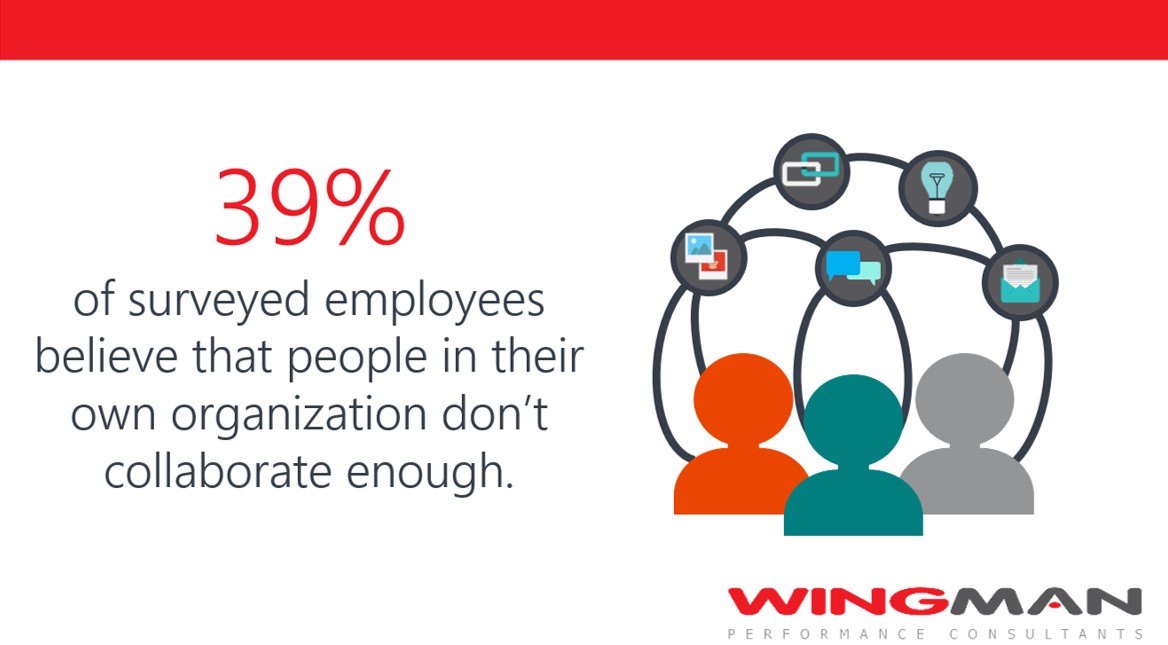
Loyalty …
According to a survey undertaken by visix.com 33% of employees say ‘the ability to collaborate makes them more loyal.’
Being asked for your input/opinion/knowledge/skills from your team or another can really boast morale and self-esteem. Giving people the time and resources to collaborate goes a long way in today’s world where it can seem like all the company wants is results as fast as possible for as little money.
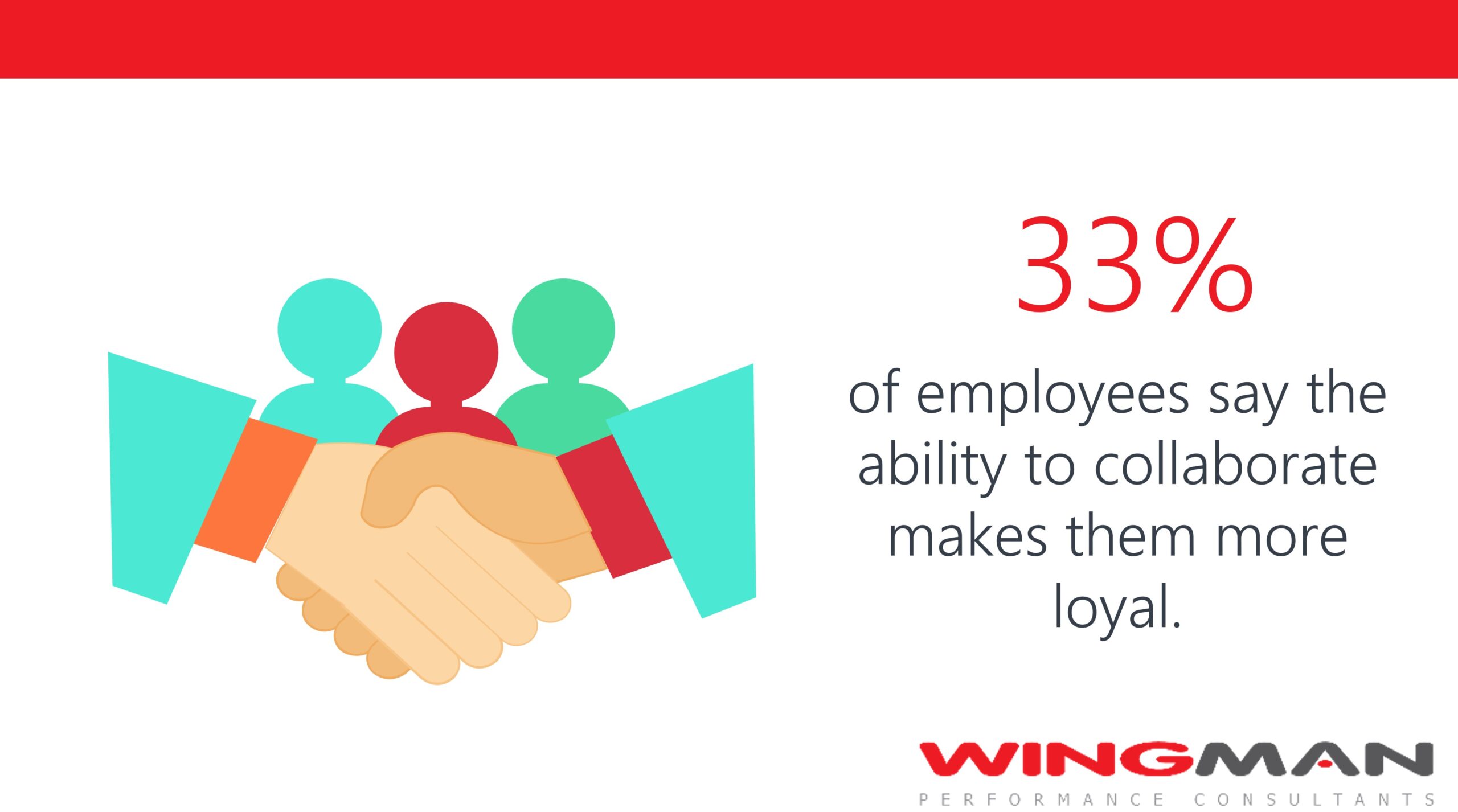
Team …
Walking into the office, onto site, onto the ward and seeing your colleagues who you get along with, cheer each other on, push each other to achieve goals and have a laugh is one of the main reasons people stay in a job. Going to work in a happy, productive, motivating environment makes a huge impact on individual and team morale.
You can’t just throw a group of people together and expect them to get along as a team. Like with any kind of relationship it takes time, effort and communication. Businesses should invest not only in individuals but within the teams in the business. We’re not talking falling into a crowd of people, paintballing or tug of war at Wingman we use activities at relevant points within our workshops to emphasise the points that have just been taught as doing something practical helps to reinforce learning.
In my time in the RAF and playing rugby we spent 90% of our time training and developing our craft and 10% delivering. In business today it is more likely that those percentages are switched, 90% doing and 10% training. Of that 10% training the majority is mandatory company training that everyone completes not training that empowers and adds to the individuals/team’s skillset, training that will support the individuals/team development and goals.
Source: Visix.com



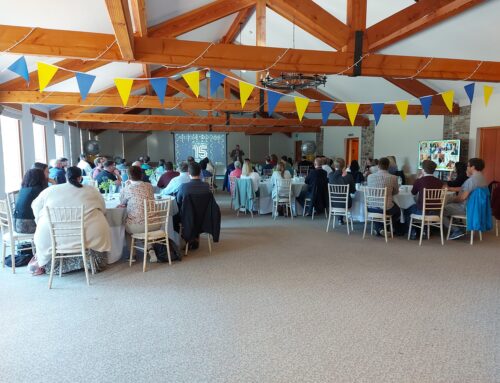


Leave A Comment
You must be logged in to post a comment.